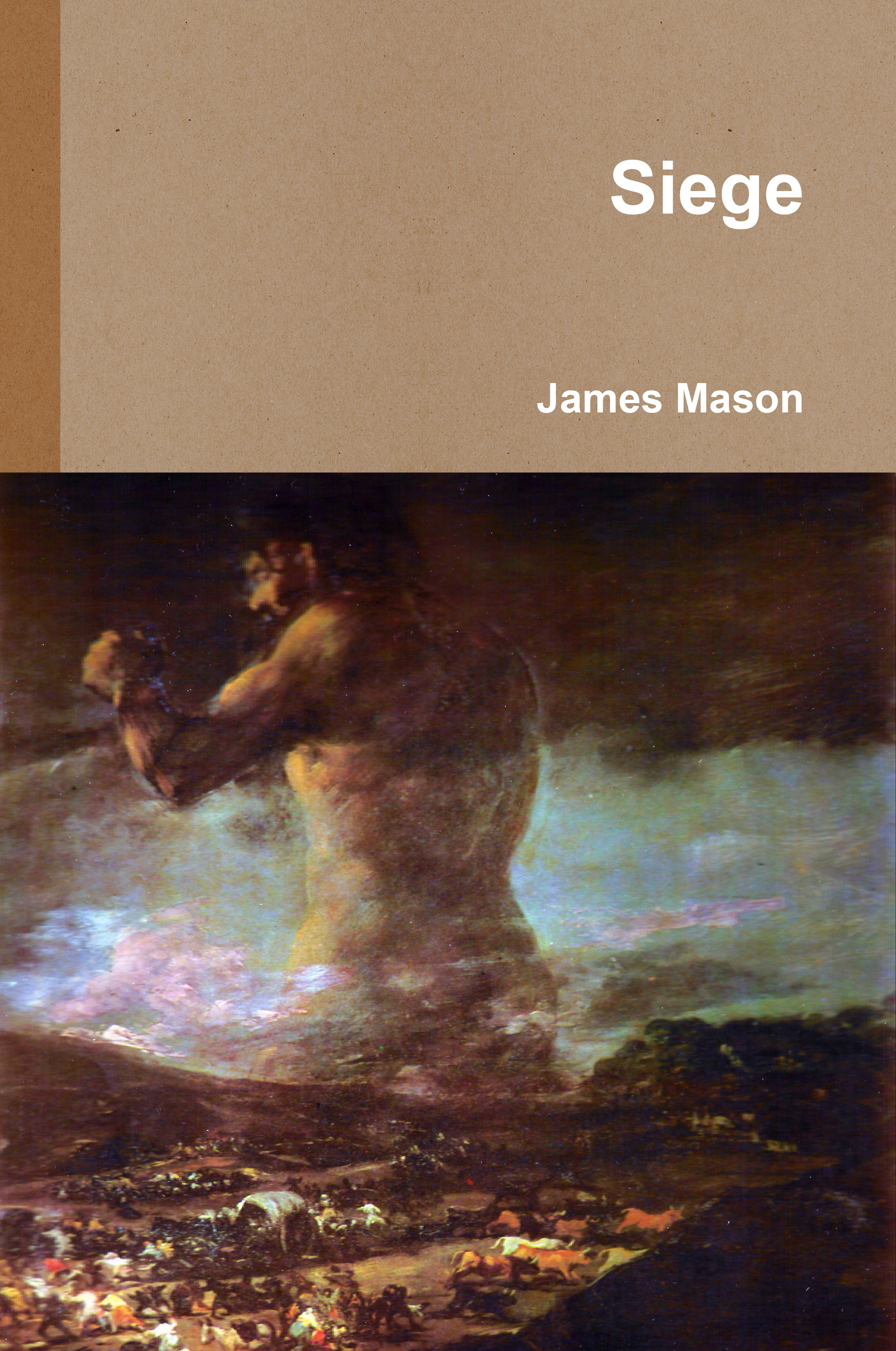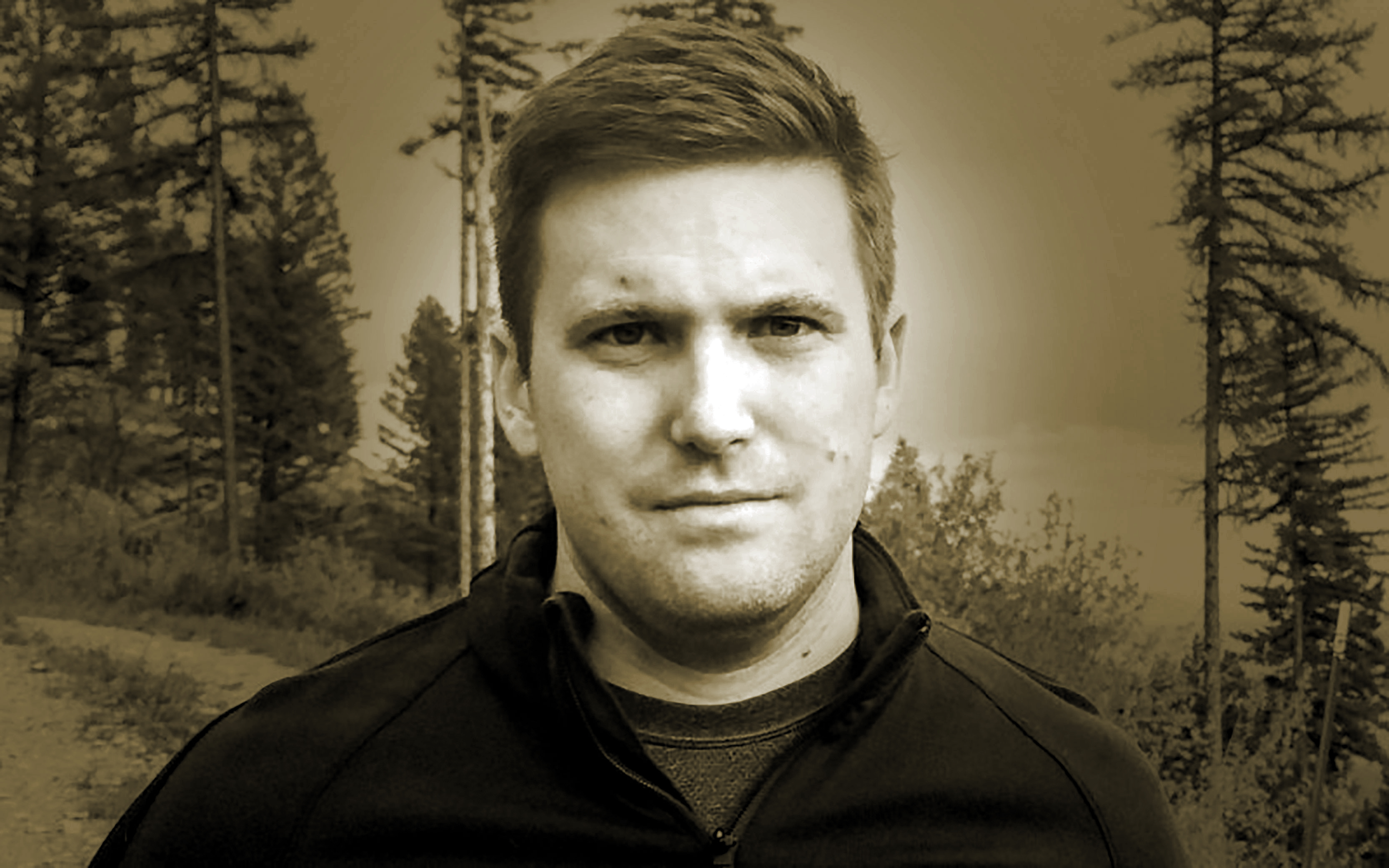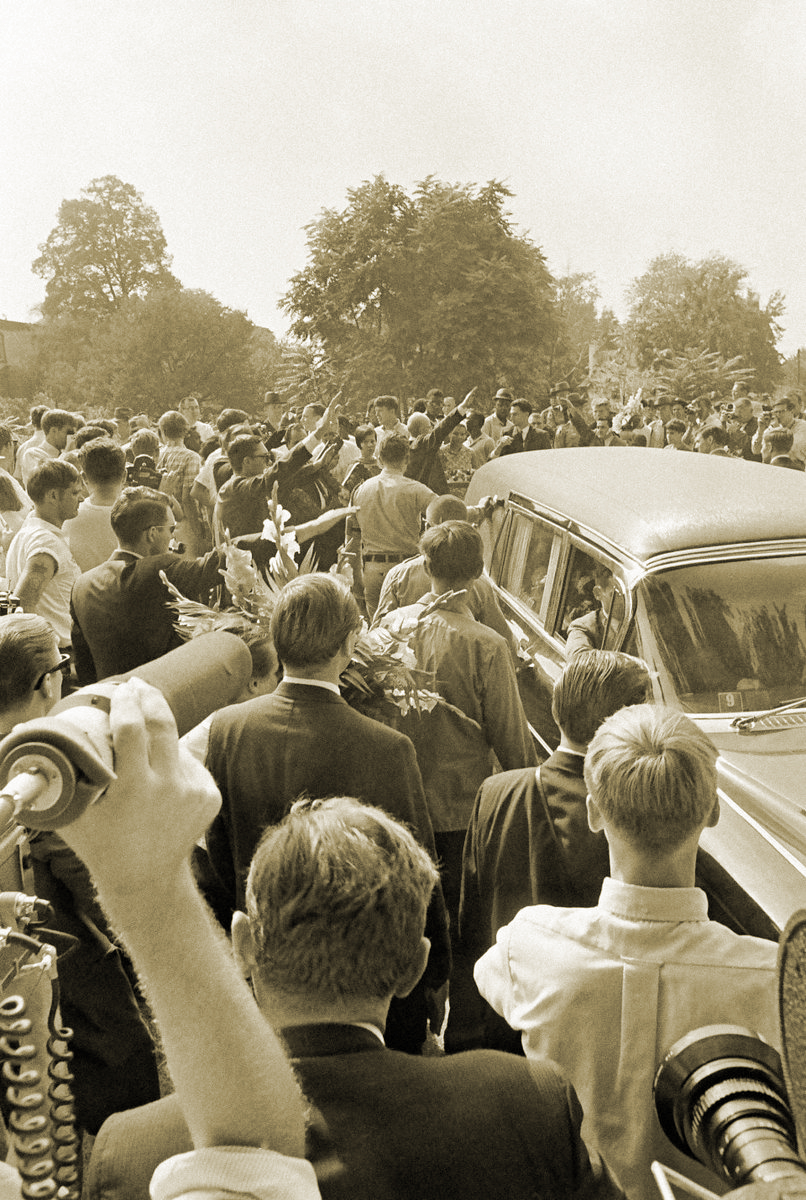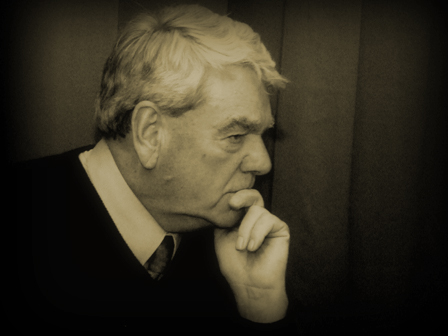The history of childhood and its Newton
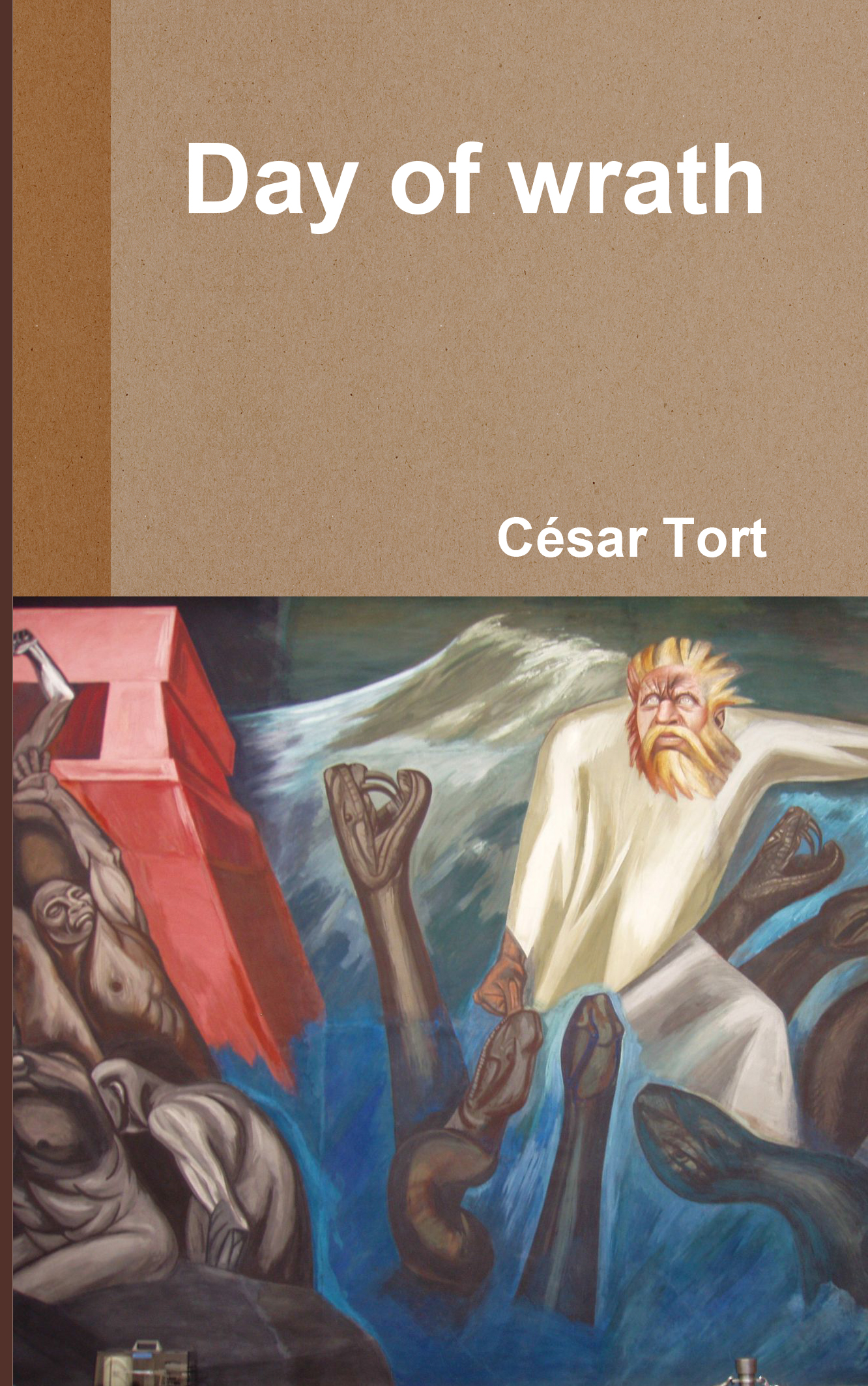
John Bowlby advanced the fundamentals for understanding attachment; Colin Ross did the same for mental disorders in human beings, and I will keep his class in mind to explain psychohistory.
But Ross is a physician, not an historian. In the following pages I will show the deeper reasons why parents have abused their children since time immemorial. The perspective to our past will open up in the widest possible way: a framework of thousands if not hundreds of thousands of years of what has occurred in my family and in all other families of the human and pre-human species. My autobiography will disappear and it will only reappear in my next book, not without having shown first the psychogenic theory of history.
Lloyd deMause (pronounced de-Moss), born in 1931, studied political sciences in the University of Columbia. After his university studies he borrowed money to establish a publishing house that consumed ten years of his life before again taking up his research work. While Freud, Reich, Fromm and others had written some speculative essays on history on the basis of psychoanalysis, such essays may be considered the Aristotelian phase of which today is understood as psychohistory. In 1958, the year in which I was born, Erik Erikson published a book about the young Luther in which he mentioned the surging of a new research field that he called “psycho-history” (not be confused with the science-fiction novels of Isaac Asimov). After a decade, in 1968, deMause presented a sketch of his theory to an analytical association where, unlike Freud and his epigones, he focused psychohistory into the diverse forms of childrearing. After the West abandoned colonialism, and endured for its behavior an absurd handover to other nations and ethnic groups, it became a taboo to focus in the dark side of non-Western cultures. By choosing a frowned-upon research area in academia deMause had to make an intellectual career independently. The drive of his research was always what the children must have felt in the most diverse cultures of the world. As we saw, the mammal, and even more the primate, are so at the mercy of their parents that the specific forms of childrearing cannot be dodged if we are to understand mental disorders. But it is precisely this subject matter, the forms of childrearing and infantile abuse, what conventional historians ignore. In his essay “The independence of psychohistory” deMause tells us that history qua history describes what has happened, not why, and he adds that history and psychohistory are distinct fields of investigation.
Whole great chunks of written history are of little value to the psychohistorian, while other vast areas which have been much neglected by historians suddenly expand from the periphery to the center of the psychohistorian’s conceptual world.
DeMause does not care that he has been accused of ignoring the economy, the sociology and the use of statistics. “The usual accusation that psychohistory ‘reduces everything to psychology’ is philosophically meaningless—of course psychohistory is reductionist in this sense, since all it studies is historical motivations.” The statements by deMause that I like the most are those in which he says something I had been maintaining for many years before reading them, when I told myself in soliloquies that, if we have to be objective to understand exact sciences like physics, only by introducing subjectivity we could understand the humanities:
Indeed, most of what is in history books is stark, raving mad—the maddest of all being the historian’s belief that it is sane. For some time now, I often cry when I watch the evening news, read newspapers, or study history books, a reaction I was trained to suppress in every school I attended for 25 years. In fact, it is because we so often switch into our social alters when we try to study history that we cannot understand it—our real emotions are dissociated. Those who are able to remain outside the social trance are the individuals whose personal insights are beyond those of their neighbors.
Psychohistory is a science in which the researcher’s feelings are as much or even more a part of his research equipment than his eyes or his hands. Weighing of complex motives can only be accomplished by identification with human actors. The usual suppression of all feeling preached and followed by most “science” simply cripples a psychohistorian as badly as it would cripple a biologist to be forbidden the use of a microscope. The emotional development of a psychohistorian is therefore as much a topic for discussion as his or her intellectual development.
I no longer believe that most traditional historians are emotionally equipped.
DeMause adds that, when he talks with a typical scholar who only uses his intellect, he runs into a stare of total incomprehension. “My listener usually is in another world of discourse.”
The publication of The History of Childhood in 1974 marks the turning point in the field that deMause created. Putting aside the idealizations of previous historians, the book examines for the first time the history of Western childhood. But the daring exposé of an entire rosary of brutalities on childhood, like the ones mentioned in the preface of this book, moved Basic Books to break the contract it held with deMause to publish The History of Childhood. The process by which from here on contemporary psychohistory was born is fascinating. In this section I will recycle and comment on some passages of one of the articles by deMause, “On Writing Childhood History,” published in 1988, a recapitulation of fifteen years of work in the history of childhood.
DeMause had taken courses at a psychoanalytic institute and put to the test the Freudian idea that civilization, so loaded with morals, was onerous for modern children; and that in ancient times they had lived in an Eden without the ogre of the superego. The evidence showed him exactly the opposite, and he disclosed his discrepancies by criticizing the anthropologist Géza Róheim:
I discovered I simply could make no sense at all of what Róheim and others were saying. This was particularly true about childhood. Róheim wrote, for instance, that the Australian aborigines he observed were excellent parents, even though they ate every other child, out of what they called “baby hunger” [the mothers also said that their children were “demons”], and forced their other children to eat parts of their siblings. This “doesn’t seem to have affected the personality development” of the surviving children, Róheim said, and in fact, he concluded, these were really “good mothers [who] eat their own children.”
Most anthropologists did not object to Róheim’s extraordinary conclusions. In his article deMause called our attention to a very distinct reading by Arthur Hippler on Australian aboriginals. DeMause had already consolidated his publishing house, and in the Journal of Psychological Anthropology he published an article in which Hippler, who had also directly observed the aboriginals, wrote:
The care of children under six months of age can be described as hostile, aggressive and careless; it is often routinely brutal. Infanticide was often practiced. The baby is offered the breast often when he does not wish it and is nearly choked with milk. The mother is often substantially verbally abusive to the child as he gets older, using epithets such as “you shit,” “vagina to you.” Care is expressed through shouts, or not at all, when it is not accompanied by slaps and threats. I never observed a single adult Yolngu caretaker of any age or sex walking a toddler around, showing him the world, explaining things to him and empathizing with his needs. The world is described to the child as dangerous and hostile, full of demons, though in reality the real dangers are from his caretakers. The mother sexually stimulates the child at this age. Penis and vagina are caressed to pacify the child, and clearly the action arouses the mother.
Keeping in mind what Ross said in the case of the second girl, we can imagine the transfusion of evil that these infants, children of filicidal cannibals, would have internalized; and how could this have affected their mental health. I believe it is appropriate to continue quoting excerpts from the deMause article: it is very instructive to understand psychohistory and how it contrasts with the postulates of anthropologists and ethnologists. Once the observations by Hippler were published, an enraged defender of Róheim responded:
I am indeed much more sympathetic to Róheim’s accounts, precisely because he does not rush to the conclusion that deMause does. Australian Aboriginal culture survived very well, thank you, very much for tens of thousands of years before it was devastated by Western interference. If that isn’t adaptive, what is?
The description that Hippler and Róheim give of this aboriginal culture seems the worst of all possible nightmares for children. But for Western anthropologists to avow condemnatory value judgments is the ultimate taboo. Some of them even accept the Freudian theory that the historical past was less repressive for childhood, and that Western civilization was a corrupter of the noble savage. But they avoid the fact that Hippler and Róheim themselves observed barbarities towards the children that would be unthinkable in the civilized world, like eating them. (Other sources that confirm the veracity of claims of filicidal cannibalism appear later.) However incredible it may seem, anthropologists and ethnologists do not condemn these cannibal mothers. Under the first commandment of the discipline, Thou Shalt Not Judge, the emotional after-effects of childrearing are ignored, such as the clearly dissociated personalities that I myself saw in the Ross clinic, and even worse kinds of dissociation.
In the academic world Róheim was not as well known as Philippe Ariès, an historian who collaborated with Foucault and an author of a classic book on the history of childhood, L’Enfant et la Vie Familiale sous l’Ancien Régime. Ariès started from the Freudian premise of the benignancy of the milieu towards children in past times. Just as with Róheim, Ariès didn’t deny the beatings, the incest and the other vexations against children described in his book. What he denied was that such treatment caused disturbances. “In other words,” deMause writes mockingly, “since everyone whipped and molested children, whipping and molesting had no effects on any child.” Ariès has been taken as an authority in the history of childhood studies. DeMause not only rejected his assumption that there were no psychological after-effects; he inverted Freud’s axiom. His working hypotheses are simple: (1) within the West the forms of childrearing were more barbarous in the past, and (2) compared to the Western world, other cultures treat their children worse. These hypotheses, which broke the tablet laws of the anthropologists, would give birth to the new discipline of psychohistory. For the academic Zeitgeist the mere talk of childhood abuse, let alone of soul murder, was against the grain of all schools of thought in history, anthropology and ethnology, which take for granted that there have been no substantial changes in parental-filial relations.
The academics could not deny the facts that fascinated deMause. As we saw above, Róheim did not deny them; in fact, he himself published them. Ariès also did not deny them. The tactic that deMause found among his colleagues was the argumentum ex silentio: without historical trace of any kind, it was taken for granted that children were treated in a way similar that in the West today. The following is a splendid paradigm of this argument. In 1963, ten years before deMause started publishing, Alan Valentine in his book Fathers and Sons, published by the University of Oklahoma, examined letters from parents to their children in past centuries. He did not find a single letter that transmitted kindness to the addressee. However, in order not to contradict the common sense that in the past the treatment a man gave his sons was not different, Valentine concluded:
Doubtless an infinite number of fathers have written letters to their sons that would warm and lift our hearts, if we only could find them. The happiest fathers leave no history, and it is the men who are not at their best with their children who are likely to write the heart-rending letters that survive.
DeMause found the fallacy of the argumentum ex silentio everywhere, even among the same colleagues who contributed articles to his seminal book, The History of Childhood. For example, when deMause made a remark to Elizabeth Wirth Marwick about these kind of letters, and also about the diaries that parents wrote, Marwick responded that only the bad left a trace in history. Most historians agreed with her. DeMause had started to study the primary sources of these materials. Marwick was only one among two hundred historians that deMause had written to for his book project, of which he worked with fifty. He claims that in all of them the argumentum ex silentio appeared at the time of reaching the conclusions to which the evidence pointed out to.
The reasons were, naturally, psychological. An Italian historian delivered to deMause the draft of a chapter that began by saying that he would not consider the subjects of infanticide and pederasty in ancient Rome. DeMause had to reject it. Other would-be contributors went further. At the beginning of this book I spoke of the torment that swaddling with tight clothes has represented for babies. John Demos, author of a book about the family in American colonists, denied that the European practice had been imported into American soil despite the evidence that deMause had collected and published (in a television history program even I saw a drawing of an Anglo-Saxon swaddled baby). As regards other kinds of abuse in American childhood, Demos used the argument that bibliographical evidence in letters, diaries, autobiographies and medical reports was irrelevant; that what mattered were the court documents.
The problem with this argument is that in colonial times there were no organizations for the protection of childhood, which originated in nineteenth century England and which have become much more visible since the 1980s. Demos did not only argue from the basis of lack of court documents against the thesis that parents abused their children more in colonial times. He also argued that “had individual children suffered severe abuse at the hands of their parents in early New England, other adults would have been disposed to respond.” Demos’ conclusions were acclaimed in his time. But just as in his argument about court documents, this last conjecture suffers from the same idealization about the past of his nation. If other adults were unwilling to respond it was simply due to the fact that in those times the social movement of infant protection had not yet arisen.
Once deMause discarded all those who argued on the basis of the argumentum ex silentio, nine historians remained. Even while the contributors were delivering their articles, some of them showed reticence about publishing all the evidence they had found. Before publication the nine contributors—ten with deMause—circulated their articles among themselves. Most of them were shocked by the first chapter written by deMause, whose initial paragraphs became famous in the history of psychohistory:
The history of childhood is a nightmare from which we have only recently begun to awaken. The further back in history one goes, the lower the level of child care, and the more likely children are to be killed, abandoned, beaten, terrorized, and sexually abused. It is our task here to see how much of this childhood history can be recaptured from the evidence that remains to us.
That this pattern has not previously been noticed by historians is because serious history has long been considered a record of public not private events. Historians have concentrated so much on the noisy sandbox of history, with its fantastic castles and magnificent battles, that they have generally ignored what is going on in the homes around the playground. And where historians usually look to the sandbox battles of yesterday for the causes of those of today, we instead ask how each generation of parents and children creates those issues which are later acted out in the arena of public life.
Once the initial impression was past, some of the contributors were reluctant that their articles should appear beside the initial chapter by deMause, and, as I previously mentioned, Basic Books broke its contract. However, since deMause was already the owner of a publishing house he decided to publish it himself.
Although the contributors finally accepted that their articles would appear under a single cover, the history journal reviews were very hostile. Even a magazine like New Statesman derided deMause: “His real message is something more akin to religion than to history, and as such unassailable by unbelievers. On the other hand, his fellow-contributors to The History of Childhood have much useful historical information to offer.” Some reviewers were impressed by the body of evidence on child abuse in past centuries, but they supposed that future investigations would place such evidence on a much more benign context. “Ariès for one,” wrote deMause, “remained convinced that childhood yesterday was children’s paradise.”
The initial chapter of the book edited by deMause was titled “The Evolution of Childhood.” DeMause claims that of the published reviews on this chapter, translated into German, French, Italian, Spanish and Japanese, no reviewer challenged the evidence as such; only his conclusions. “Yet not a single reviewer in any of the six languages in which the book was published wrote about any errors in my evidence, and none presented any evidence from primary sources which contradicted any of my conclusions.” As we will see in “A Critique of Lloyd deMause” his theories are not exempt from error. Far from it! There are errors: lots of them. But these critics who rushed to judge him falsely did not see the real faults of his model. With regard to the published reviews, deMause wrote:
Since it was unlikely that I could describe the childhood of everyone who ever lived in the West for a period of over two millennia without making errors, it was extremely disappointing to me that the emotional reactions of reviewers had completely overwhelmed their critical capacities. No reviewer appeared to be interested in discussing evidence at all.
There were nonetheless magnanimous reviewers like Lawrence Stone, who in November of 1974 wrote in New York Review of Books about “the problem of how to regard so bold, so challenging, so dogmatic, so enthusiastic, so perverse, and yet so heavily documented a model.” But the majority adhered to the conventional wisdom, as did E.P. Hennock in a specialized magazine:
That men in other ages might behave quite differently from us yet be no less rational and sane, has been a basic concept amongst historians for a long time now. It does not belong to deMause’s mental universe. The normal practices of past societies are constantly explained in terms of psychoses.
Once more, the evidence as such is put aside to proclaim the conventional wisdom, which is taken for granted. In a review published in History of Education Quarterly, Daniel Calhoun wrote that deMause’s approach resembled a regression to 19th century concepts, an antiquated evolutionistic morality for Calhoun. As we will see in a later chapter in refuting Franz Boas, reality is the exact opposite: the Boasian school represented a gigantic regression compared to nineteenth-century anthropology.
At present studies of the history of childhood continue to emerge from deMause and academic historians alike; for example, the study by Colin Heywood. But it is precisely books like Heywood’s, which accept the historical evidence of abuses of childhood but differ from deMause’s conclusions, that have convinced me that deMause has found a gold vein that still has substance for much exploitation. DeMause ends his retrospective article of 1988 by pointing out that, despite the rejection by the academy, The History of Childhood, the books of Alice Miller and other popular authors who advocate the cause of the child are widely read by an important niche of society. In a nutshell, the main finding of psychohistory is that academic history fails to recognize the profound role that the love, or hate, of the parents for their children plays in the future developments of mankind.
___________
The objective of the book is to present to the racialist community my philosophy of The Four Words on how to eliminate all unnecessary suffering. If life allows, next time I will publish here the section on Julian Jaynes. Those interested in obtaining a copy of Day of Wrath can request it: here.
